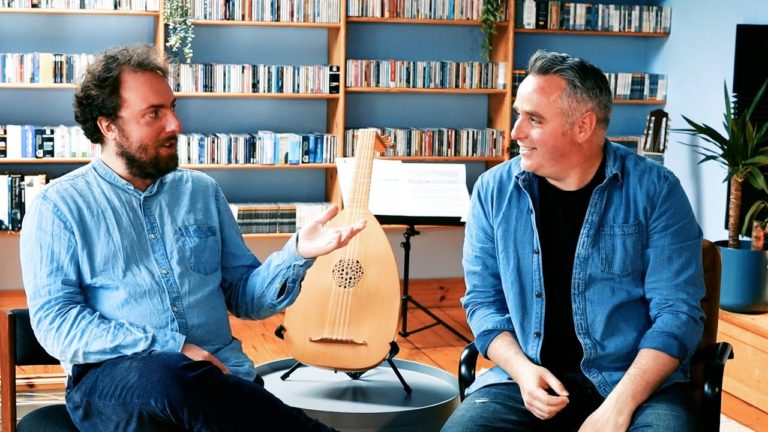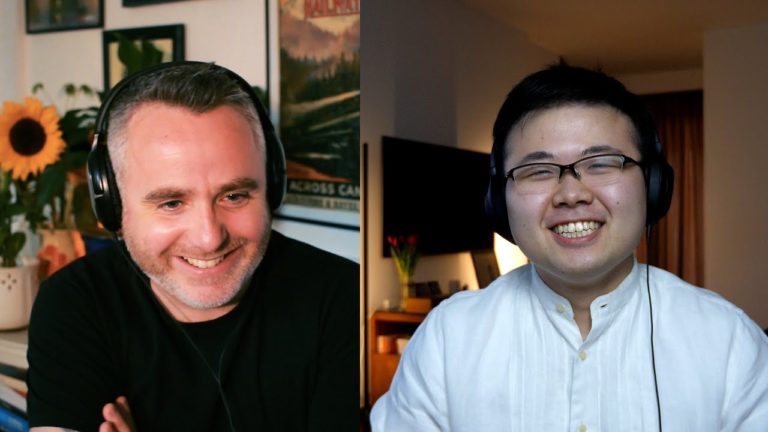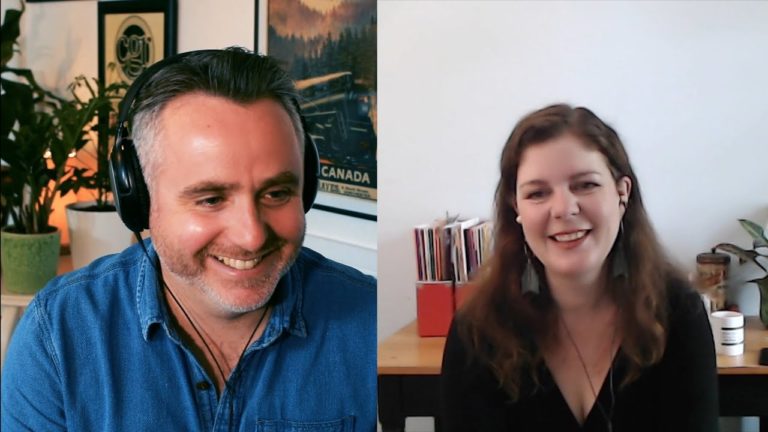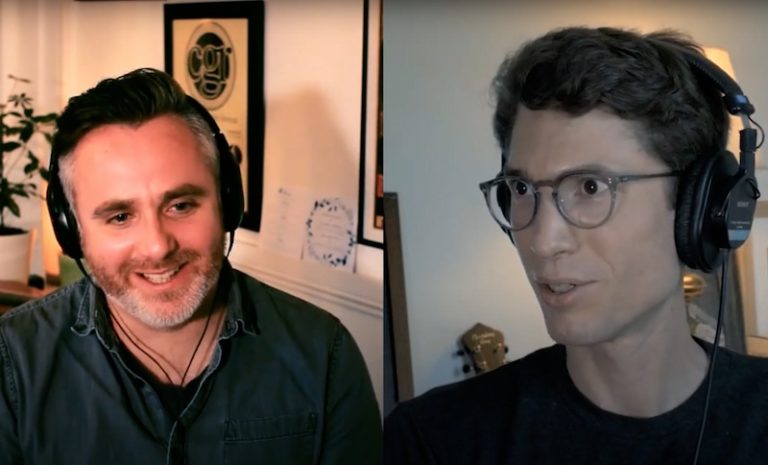Here’s an interview and some media by composer Agustín Castilla-Ávila. He was interviewed by guitarist and organizer Angelito Agcaoili. Agustín was kind of enough to submit this article for the site. I’ve enclosed some additional photos and videos as well so you can get to know him and his work a bit better. I really like his works for their attention to sounds and the orchestral nature of his guitar writing. Visit the composer’s website to hear samples and learn more about both his guitar works and works for other instruments!
Artist Website: www.castilla-avila.com
Artist YouTube: www.youtube.com/user/castillaavila1974

One of things about music that fascinates the Spanish composer Agustín Castilla-Ávila most is that “it is the only language in which you cannot lie”. Probably, music is the language that communicate everyone`s thoughts in the most precise way. Through music, you cannot hide where you come from, neither geographically nor musically. My passion for composition comes from the guitar, an instrument I played for many years and which I used for my first self-taught compositions. I owe the guitar my love for composing.
The German guitarist Yvonne Zehner is presenting the portrait Cd of Castilla-Ávila “Nostalgia” at the festival Passauer Saiten in Germany. Castilla-Ávila is a composer in residence at the festival that Mrs. Zehner directs. “Nostalgia” is his first portrait album and “the best way to show myself is to show my roots”.
“Although a composer might go forward with its own language, one might feel nostalgic at some point and try to go back to the language from the first days. It happened to me, that I tried to go back to the language of the habanera “Presentimiento”, “Meditations” or “Tres Canciones para Soprano y Guitarra”. This musical nostalgia is strong connected to the one I might feel about the land I was born and spent my childhood. I was as lucky to be born in the south of Spain as to go around through different countries to end up living in the beautiful town of Salzburg. Nostalgic feelings, both musical and geographical are tracks difficult to erase; they come back and can be shown in pieces like “Duerme, Tesoro” o “Das Lied des großen kleine Prinzen”, works very related to the childhood. “Nostalgia” is also the title of a piece dedicated to the poet Juan Ramón Jiménez, for whose work one might feel the same nostalgia. For his Works or for those of Federico García Lorca (“Dos Romances”), Rafael Alberti (“Marinero”) or Miguel de Cervantes (“El Lamento de Don Quijote”), those I invoke in the same way”.

The guitarist Angelito Agcaoili met the composer Agustín Castilla-Ávila the first time in 2002 in Tempe as he was studying at Arizona State University. He already realized already about his compositional skills. Castilla-Ávila dedicated some of his guitar compositions written while his staying in Arizona. In 2010, Angelito Agcaoili invited him as Composer in Residence at his Guitarra Festival at the University of Santo Tomás in Manila, Philippines, where his compositions caused a very good impression among the guitarists.
Besides his doctorate studies at Arizona State University under Frank Koonce, he studied guitar at London College of Music under C. Bonell, at Guildhall School of Music under R. Brightmore and at Mozarteum in Salzburg with I. Siewers. He studied Composition at Mozarteum under A. Hölszky und R. Febel and at Luxembourg Conservatory with A. Mullenbach.
Interview between Angelito Agcaoili & Agustín Castilla-Ávila
A. Agcaoili: The first time I met you, more than 10 years ago; you were spending most of your time with the guitar. Now, after having some other pieces recorded in CD, Katharina Schwarz (Soprano), Bernd Lambauer (Tenor), Barbara Blummenstingl (Flute) and Yvonne Zehner (Guitar) are releasing your first portrait Cd with the title “Nostalgia”. What does this “Nostalgia” mean?
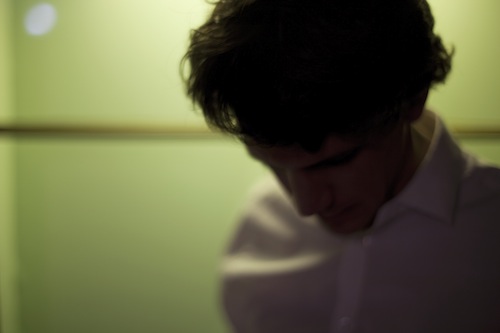
A. Castilla-Ávila: My passion for composition comes from the guitar, an instrument I played for many years and which I used for my first self-taught compositions. This love for composing became through the guitar so strong, that I went to Salzburg to begin composition lessons in 2004. Since then, many things have change. I thought it could be just a break as a guitarist to understand the mechanism of composing in a better way. But it seems that I will continue my way in creating. Sometimes I feel a little nostalgic about my period as guitarist, missing things like composing only using the guitar or being some kind of naïve in my language. I might try to go back to the language from the first days. It happened to me, that I tried sometimes to go back to the language of the habanera “Presentimiento”, “Meditations” or “Tres Canciones para Soprano y Guitarra”. This musical nostalgia is strong connected to the one I might feel about the land I was born and spent my childhood. I was as lucky to be born in the south of Spain as to go around through different countries to end up living in the beautiful town of Salzburg. Nostalgic feelings, both musical and geographical are tracks difficult to erase; they come back and can be shown in pieces like “Duerme, Tesoro” o “Das Lied des großen kleine Prinzen”, works very related to the childhood.
A. Agcaoili: Do you still play?
A. Castilla-Ávila: I don’t have much time anymore to play guitar it is very important for me to not to lose the feeling of what it is to be being a performer. Composers should always have this feeling while writing. From time to time, I get time to perform in Ensembles or to play solo. Especially Baroque, my own microtonal compositions or my early works like “Presentimiento”, “Five o’clock” or “Laura’s Song”. “Laura’s Song” was written in Arizona.
A. Agcaoili: Has anything changed in your playing since you became a composer?
A. Castilla-Ávila: In the same way that a composer should play an instrument to have always the feeling of what performing is, a performer should involved himself as much as possible with composition to have another perspective and the feeling of what writing music is. It is not that I became more analytic being a composer. I understand music much better and feel much more comfortable.
A. Agcaoili: What do you see as the new dimensions that microtonality brings to the guitar other than pitches?
A. Castilla-Ávila: Honestly, beauty. It doesn´t mean that all tonal compositions are beautiful. It happens exactly the same with microtonal compositions. But when you hear a good microtonal composition, it extends your concept of beauty in music. There are many ways to use microtones and microtonal scales. In fact, my system at sixths of a tone is really simple. The scale is divided in 36 equal intervals. The only change that I do very often is to use six same strings to obtain the microtonal intervals between the strings, but there are other possibilities without changing the strings. Microtonality is a common element in music from other cultures, which can be perfectly imported to the guitar.
A.Agcaoili: What aspects have you learned from microtonality that you use in composing with the standard 12 tone pitches?
A. Castilla-Ávila: It has definitely widened my perception of the instrument. In the composition “Das Lied des grossen kleinen Prinzen” from the “Nostalgia” Cd, I use natural harmonics which do not sound tempered any more. In a way, I try to imitate the atmosphere of the microtonal resonances, which feels deeper and fits better to the text.
A. Agcaoili: Is there any particular trait or character in your compositions, that is unique yours and is recognizable as your “stamp” or “trademark”?
A. Castilla-Ávila: It is really difficult for me though I always try to “see myself in the mirror”. I consider myself very versatile. As a rule, I always I try mostly to use good material and to present it in the most simple and clear way. Like cooking (laughing). The compositions “Presentimiento”, “Tres Momentos Microtonales” or “A Piano Piece for a Guitar Player” are quite different in terms of the language. The first one shows my roots and my connection with the guitar, the second one my fascination for microtonality and the latter my love for theater. But the material in they three appear in a very clear way. I am also aware about the rhythmical elements in many of my compositions, probably because of a connection with flamenco music and Jerez, the city where I was born.
A. Agcaoili: When you compose for the guitar do you always have a guitar in your hand or just write out what comes to your mind and make the adjustments later so they can be played or playable on the instrument?
A. Castilla-Ávila: It depends. It is always different. It used to be more with the guitar in my hands or with the guitar near me. Today, it does not have to be like this. I can compose much more without an instrument. When I write for a particular instrument, I like to have it near me. Even when I cannot play it, I can imagine how it works in reality. I know the guitar very well; I can afford not to have it near me. But from time to time and for my own pleasure, I like to compose with a guitar in my hands.
A. Agcaoili: When writing for the guitar, do you find yourself being restricted by your knowledge of the instrument as a player? Or do you compose without really thinking about the guitar? (this is similar to the previous question)
A. Castilla-Ávila: I cannot pretend that I don`t know the instrument. It is very difficult to write in a neutral way. But before writing the notes, you need to do a lot of plans and sketches. I might use processes that I already develop in music for other instruments. Of course, sometimes you have to adapt some ideas to the guitar and the other way around.
A. Agcaoili: What would you consider landmark of your career as a composer?
A. Castilla-Ávila: As I just said, I am very versatile in my music and it is very difficult to be auto critical. But in many compositions, to state it in a poetical way, I try to create a story with the music material.
A. Agcaoili: If you have to list your top 5 compositions (for any medium and genre), what titles will be included?
A. Castilla-Ávila: “Presentimiento” for being the composition, which made me consider becoming a composer. “Still-Leben mit Stille” (Still-life with silence) and “Sonata for Solo Score” for its meaning, “Landschaft am Meer mit Kometen” for its colors and the chamber “La Dulcinea de Don Quijote” for being the richest in many aspects (including how I use the guitar in it) and the composition that made me give more of myself.
A. Agcaoili: If you have to list your top 5 works for the guitar, which ones will you vote for?
A. Castilla-Ávila: I would add “Tres Momentos Microtonales” for exploring microtonality, “Caged Music II” for realizing the importance of having fun while performing, “A piano piece for guitar player” as an essay about fantasy and “Picassianne” and “El Pozo Amargo” for exploiting the different resources of the instrument.
A. Agcaoili: Let’s look at the future. In another 10 years, what would you like you achieve as a composer and musician? What do we hope to see in Agustin Castilla-Avila?
A. Castilla-Ávila: I cannot really see that far. I enjoy composing very much. I wish I just continue my way and finish all the projects that I have at the moment (I will be busy enough for the next two years). I also wish to have the chance to finish some of my operatic projects and a guitar concerto.

